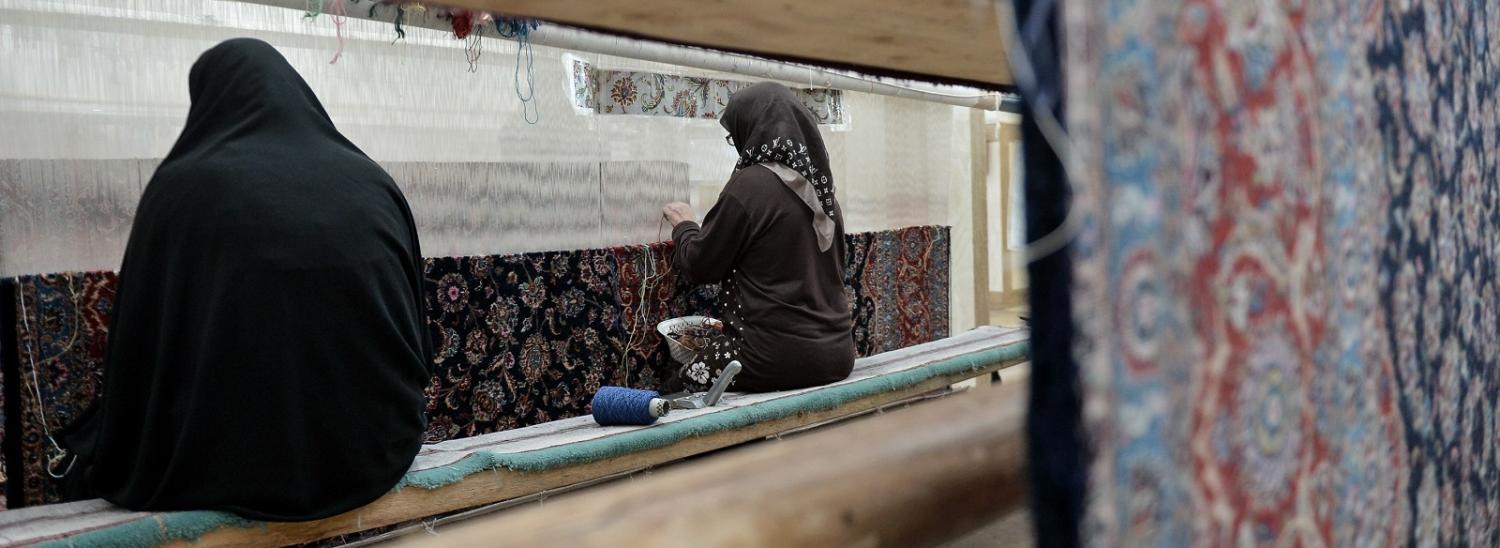In May this year Iranians will go to the polls twice: first to vote for their next president, and then for nearly 120,000 council members in the municipal election. Women, like youth, form a critical component of Iran’s electorate. They played a key role in the election of reformist president Muhammad Khatami (1997-2005) and the moderate incumbent Hassan Rouhani in 2013, after eight years of conservatism under Mahmoud Ahmadinejad (2005-2013). But when two leading members of the women’s movement recently shared with me their views on the prospects for the advancement of women in the upcoming elections, their outlook was bleak. Both women are founding members of a non-governmental organisation advocating women’s socioeconomic and political participation. This post explores some of the reasons why the activists I spoke with are pessimistic about progress in the 2017 elections.
Public discourse on political continuity
Rouhani came to power in 2013 on an election platform to promote cultural openness and reduce government interference in people's lives. Throughout his campaign, Rouhani spoke of the need to improve the status of women by increasing their social and economic participation. He went so far as to pledge the establishment of an independent ministry for women. There is wide consensus that although Rouhani showed some signs of goodwill towards advancing gender equality, by and large he failed to fulfill his election promises. There have been no major reforms on laws concerning women’s status under his administration, and no public discourse on the concept of a women’s ministry.
And yet, according to one activist, 'the 2017 election atmosphere is not the atmosphere for change'. Unlike the 2013 presidential elections, when there was a groundswell of support to end Ahmadinejad’s rule and usher in the moderate camp, in 2017 some women feel 'there are no better options' than to re-elect the incumbent, despite a perception that he has been a disappointment for the women’s movement. The focus on political continuity has intensified since news of the death of former president Akbar Hashemi Rafsanjani on 8 January. At the time of his death Rafsanjani was chair of the Expediency Council, a consultative body responsible for resolving disputes between the parliament and Guardian Council, which comprises hardline clerics. Rafsanjani was known for backing moderate and reformist camps in behind-the-scenes negotiations to ease tensions with the conservatives. According to one analyst, the need for moderates and reformists to rally together to back Rouhani’s re-election is even greater following Rafsanjani’s death.
Increase in security following the 2016 parliamentary elections
The women’s movement has often organised influencing activities in the lead up to elections. In the 2016 parliamentary elections, the Change the Male Face of Parliament campaign encouraged 'equality minded' women to run for parliament, raised awareness about the importance of women’s representation in government, and monitored candidates known to hold policy positions adverse to women’s empowerment. This was a remarkable initiative that contributed to the highest-ever number of women (17) in the parliament of the Islamic Republic, and had a number of higher-order outcomes regarding voter behavior, democratisation, and women’s capacities and self-confidence.
But the campaign also had unintended negative consequences: several activists involved in the initiative were interrogated and harassed. The unwanted attention of security forces prompted the Feminist School (the intellectual wing of the women’s movement) to cease its online publications. Doubt and anxiety arose within the women’s movement over whether or not to run further activities in the lead up to the 2017 elections. One activist said: 'Now it’s much more difficult to have the kind of free and efficient discussions necessary to form a collective action amongst women’s rights activists'.
Ways forward (?)
The activists agreed, however, that concerns around women’s safety and security are most pressing in terms of the presidential elections, and there may be more room to manoeuvre in the municipal campaigns. Some members of the reformist camp, including Azar Mansouri (deputy leader of the Islamic Iran Participation Front), have reached out to members of the women’s movement to ask for their help in promoting women candidates for the municipal elections. In this sense, the municipal elections present a window of opportunity that women activists perceive to be absent from the presidential race. If the women’s movement does go ahead with influencing activities in the lead up to the council elections, it is likely their focus will be on advocating an end to violence against women. Whilst there are no official statistics on domestic violence in Iran, anecdotally rates are high. Activities in this area would ride on the back of government steps to introduce safe houses for women victims of domestic violence in 18 provinces throughout Iran in 2015, and an anti-domestic violence campaign launched by women activists in December 2016.
For now, it seems the progress we saw around women’s involvement in politics during the 2016 parliamentary campaigns has stalled. There is no mood to undertake potentially risky influencing activities and the women’s movement is not expecting great changes ahead. Some small initiatives may emerge in relation to the municipal elections (watch this space), but the Presidential race is likely to remain off limits for the women’s rights agenda. That the women's movement is caught in a game of cat and mouse with the government (civil space opens and contracts in constant cycles) prohibits them from planning and deploying the kind of long-term strategies necessary for meaningful progress around gender equality. The advancement of women's rights in all countries around the world, including Western nations, is slow and fragile; activism in this space must be continuous and sustained, otherwise even the smallest of gains can be lost. This is perhaps one of the greatest problems faced by the Iranian women's movement.

